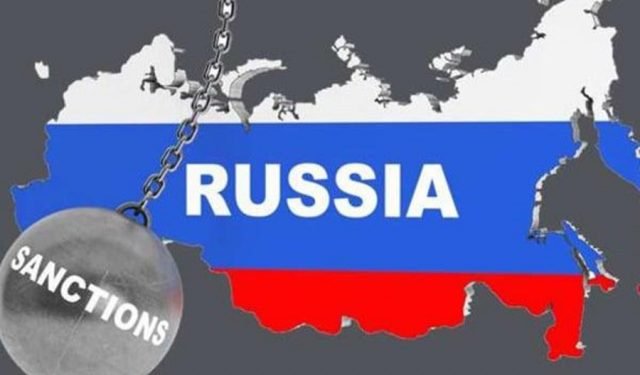Belgium, (Brussels Morning Newspaper) The European Commission proposed on Wednesday a new batch of sanctions against Russia over the war in Ukraine.
The proposal includes an embargo on Russian exports worth some 7 billion euros, a price cap on oil, and restrictions on EU exports to Russia, according to France24 reporting.
The latest package of measures also includes an expansion of the list of individuals and entities targeted by asset freezes and travel bans. New additions to the list include defense officials and organizers of referenda in occupied parts of Ukraine.
EC President Ursula von der Leyen pointed out that “Russia has escalated the invasion of Ukraine to a new level” and pointed to “sham” referenda in Ukraine’s occupied territories as well as Russian President Vladimir Putin’s “threat to use nuclear weapons.”
The EC’s proposed sanctions still need the approval of EU member states to come into effect. Hungary previously opposed economic restrictions and measures targeting Russian energy imports and is expected to push back against the EC’s latest plan.
Referenda in occupied territories
Von der Leyen reiterated that the EC does not “accept the sham referenda nor any kind of annexation… and we are determined to make the Kremlin pay the price for this further escalation.”
The G7, which includes EU member states France, Germany, and Italy, previously agreed to impose a price cap on oil via insurers.
The EC did not include the proposed ban on the import of Russian diamonds, which Baltic EU member states and Poland called for.
Andrzej Sadoś, Permanent Representative of Poland to the EU, called for including Patriarch Kirill, head of the Russian Orthodox Church, on the sanctions list.
He pointed out that Patriarch Kirill is an ally of the Kremlin. Hungary blocked previous attempts to impose sanctions against the Patriarch.
Under the EC’s proposal, EU companies would not be allowed to provide more services to their Russian counterparts and EU citizens would be barred from sitting on Russian state-owned companies.
Former German Chancellor Gerhard Schröder is the chairman of Nord Stream AG, operator of the Nord Stream 1 gas pipeline, and previously worked for Russian energy companies Rosneft and Gazprom.
François Fillon, former Prime Minister of France, stepped down as a member of the board of directors of Russian petrochemicals company SIBUR in February this year.




